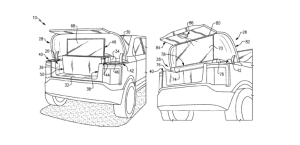Toronto, Ontario — Two industry executives aired their opinions on the federal government’s EV targets in a recent National Observer op-ed, where the pair criticized the lack of regulations requiring automakers to “keep up” with EV demand in Canada.
Mark Zacharias, executive director of Clean Energy Canada, and Daniel Breton, president and CEO of Electric Mobility Canada, say that, despite “Canada’s relatively soft version of [EV adoption] policy, many automakers have been quick to descend on Ottawa, pressuring the government to defang its zero-emission vehicle regulation.”
“The federal government should make its policies and decisions based on evidence, not misinformation from lobbyists representing their bottom lines,” they write.
The pair notes that, in 2019, Canada had the worst record in the world for average fuel economy and carbon emissions per kilometre driven. Canadians are eager to adopt EVs, too, but the real issue is accessibility, say Zacharias and Breton.
According to a study from climate and energy advisory firm Dunksy, EV stock was low across Canadian dealerships in 2022; fewer than one-in-five dealerships had a single EV in stock and 40 percent of dealers had wait times upwards of six months, cite the pair.
And it’s not because there’s a lack of demand; studies across the board show Canadians are more than interested in purchasing EVs as their next vehicle.
“Six in ten Canadians already believe, correctly, that an EV would ultimately save them money. Canada has a supply problem, not a demand problem,” they write. “The real problem is accessibility.”
The Canadian federal government remains firm in its mandate to end sales of zero-emissions vehicles beyond 2035. Ottawa aims for 20 percent of new vehicles sold by 2026 to be ZEVs; by 2030, they want that number upped to 60 percent. Other jurisdictions—even in the Canadian market, with Quebec and B.C.—have more stringent regulations.
“In the past, allowing the industry to follow its own timelines simply hasn’t worked to make more EVs available for Canadians, nor get us on track with our emissions objectives,” note Zacharias and Breton, citing a 2005 voluntary agreement for the auto industry to decrease emissions by 5.3 megatonnes by 2010.
“They missed the mark by 95 percent.”
The pair argues that to address the issue at hand, automakers should be “requir[ed] to keep up.”
Zacharias and Breton cite an Environmental Defence study that found a regulated sales target would lead to a 20 percent reduction in EV prices as “automakers would need to deliver more affordable models to Canadians, not just luxury models, in order to hit their targets.”
A recent price war spurred by Tesla has driven EV prices across the board down by more than seven percent in the last twelve months.
The pair conclude that the answer to making EVs “available and affordable” for Canadians in every province lies in regulated sales targets (for automakers).
“Many automakers, like Ford or Tesla, saw where the puck was going and are now reaping the benefits of early action,” they write.
“Canada should not weaken its zero-emission vehicle sales targets for automakers that miscalculated the future. Weaker policy might help their quarterly earnings, but it certainly won’t help Canadians drive cleaner, more affordable vehicles.”




























